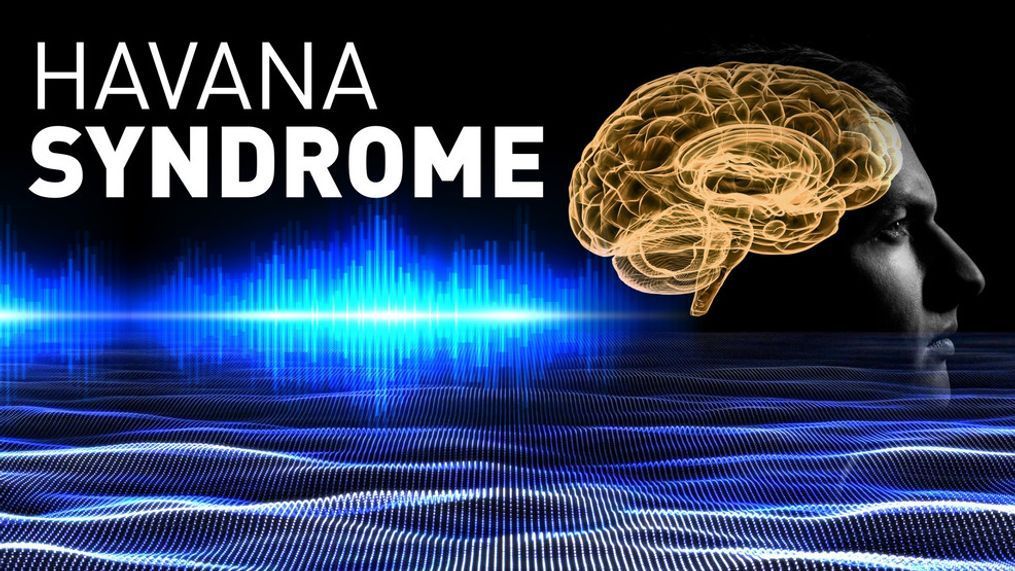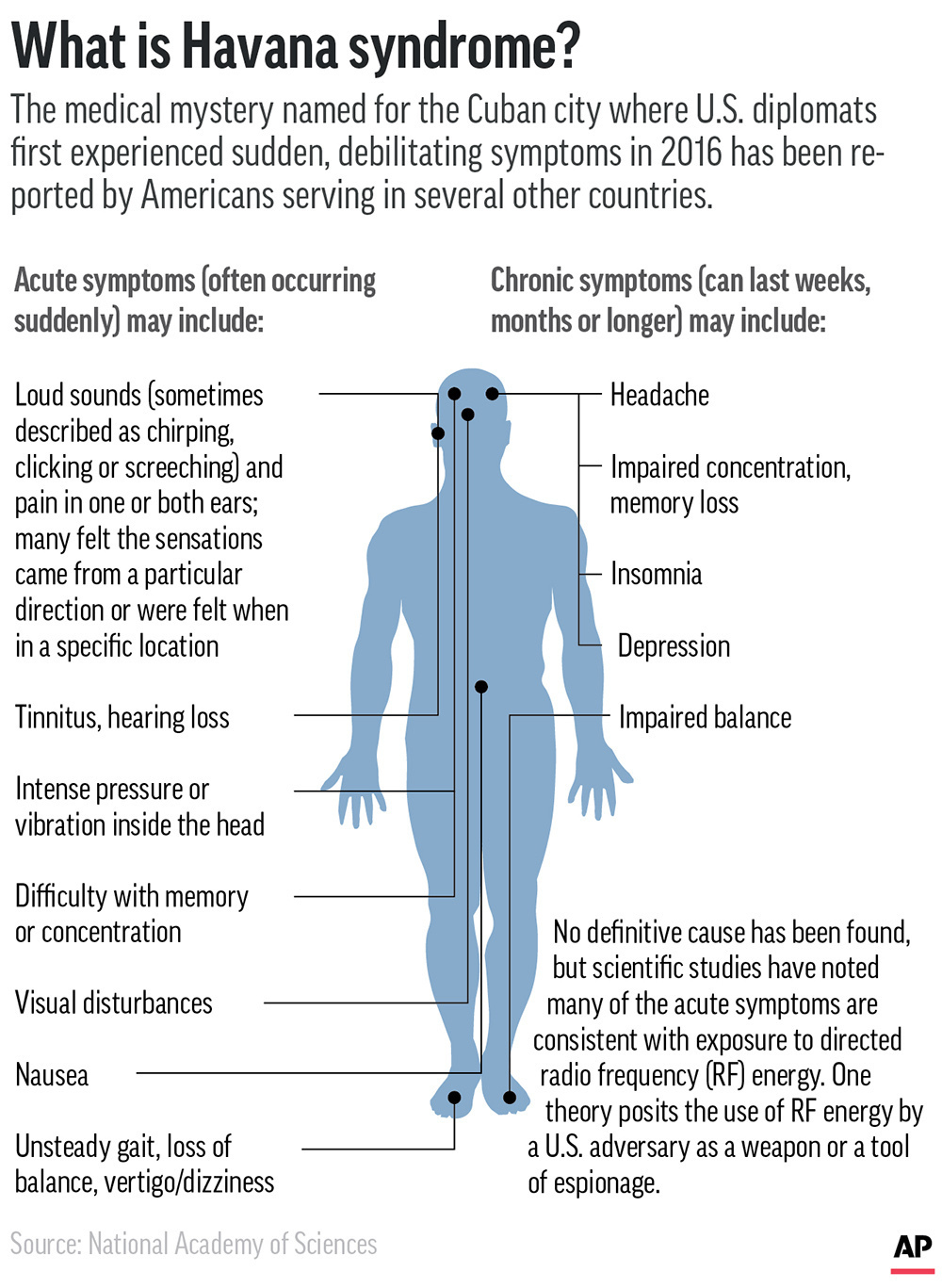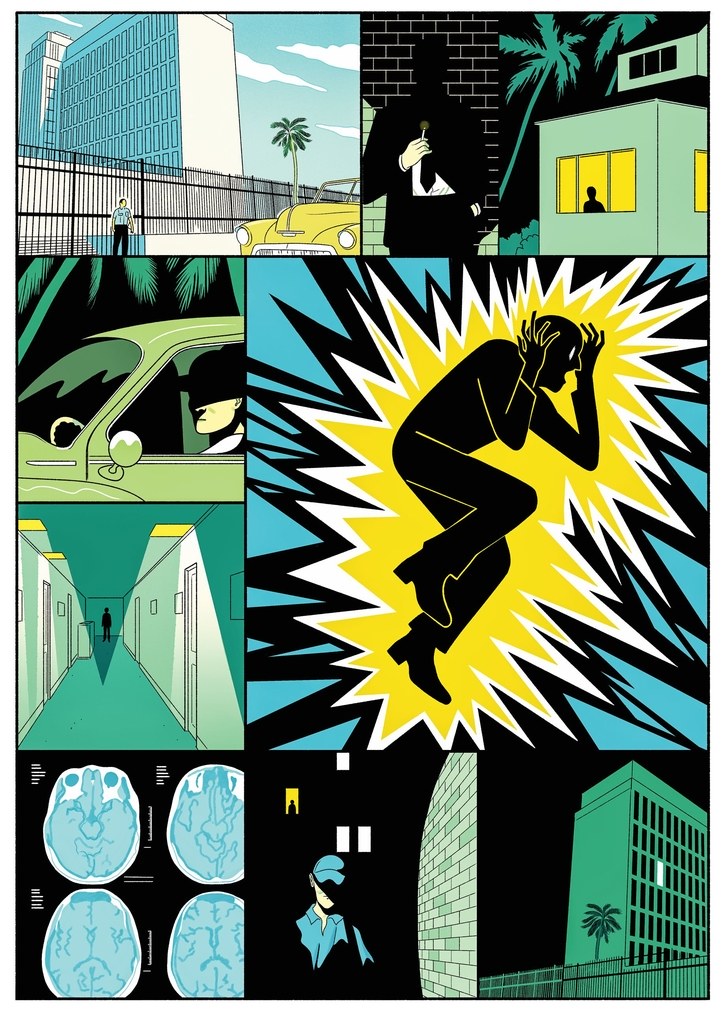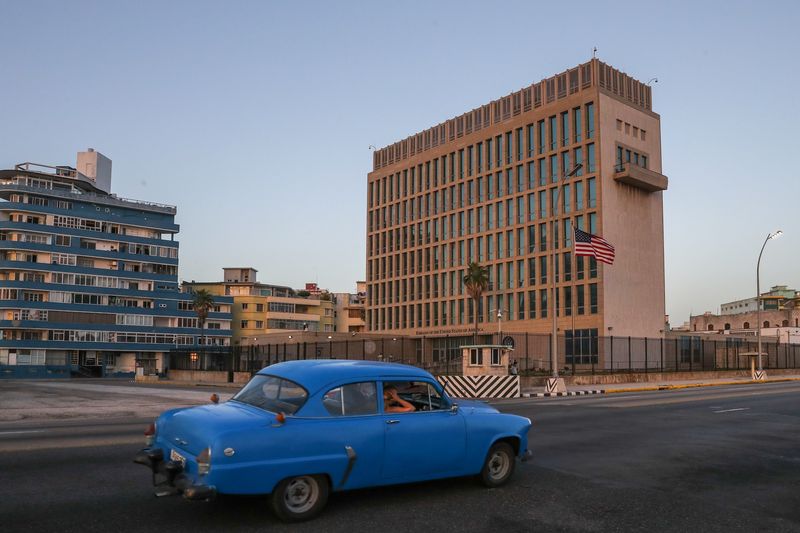Fast forward eight years, and the phenomenon, now known as Havana Syndrome, remains one of the most baffling and controversial enigmas of modern geopolitics. It’s a story of covert warfare, shadowy adversaries, and a desperate search for answers.
When Sound Became a Weapon

It all started with U.S. embassy staff in Cuba hearing bizarre, high-frequency noises that seemed to emanate from nowhere. Some described it as a cricket-like chirping; others said it resembled the hum of static electricity. The sounds were often accompanied by intense pressure or vibrations in the skull, leading to dizziness, fatigue, and even cognitive impairment.
Doctors performed brain scans and found abnormalities resembling a mild traumatic brain injury—a condition typically caused by blunt-force trauma. But these individuals hadn’t been physically struck.
Theories began to swirl: Was this a deliberate attack using an unknown weapon?
Theories That Will Blow Your Mind
- Microwave Radiation:
A leading theory suggests that directed microwave radiation was used as a weapon. Scientists speculate that this could cause a phenomenon called the Frey effect, where microwaves induce sounds in the brain without external noise. Could this be the work of a hostile government testing experimental weapons?(Source: BBC) - Ultrasound Devices Gone Wrong:
Another theory proposes that ultrasonic surveillance equipment malfunctioned, accidentally causing the symptoms. If true, this means Havana Syndrome might be an unintended consequence of espionage. - Mass Psychogenic Illness:
Dismissed by some but embraced by others, this theory claims that the symptoms are psychosomatic—triggered by stress and fear rather than any physical attack. Critics argue this theory undermines the real suffering of victims. - Environmental Factors:
Some researchers believe environmental toxins, such as pesticides, might have caused the syndrome. Others point to crickets—the sound victims reported eerily matches the chirping of the Indies short-tailed cricket.

From Havana to the World
What began in Cuba didn’t stay there. Similar incidents have since been reported in China, Russia, and even Washington, D.C. Over 200 American officials, diplomats, and intelligence agents have reported symptoms. Most disturbingly, some of these cases occurred in heavily guarded U.S. government buildings, raising the chilling possibility of infiltration by a foreign adversary.
Could this be a global covert campaign targeting American personnel?
What the U.S. Government Is Saying

In 2023, a U.S. intelligence report stated it was “unlikely” that a foreign power was behind Havana Syndrome. Instead, investigators suggested the symptoms could be explained by environmental or psychological factors.
But a House Intelligence Committee interim report in 2024 directly contradicted this, arguing that it’s “increasingly likely” the result of targeted attacks by a foreign adversary.
This discrepancy has left victims furious, accusing the government of downplaying their suffering for political reasons.
Victims Left in the Dark

For those affected, Havana Syndrome isn’t just a mystery—it’s a living nightmare. Many have been left with permanent disabilities, unable to work or live normal lives. They’ve faced bureaucratic hurdles, inadequate medical care, and skepticism from colleagues and doctors.
“I feel abandoned by my own government,” one victim told reporters. “They don’t want to admit what’s happening because they don’t have the answers.”
The Global Stakes
Whether Havana Syndrome is the result of psychological factors, environmental toxins, or deliberate attacks, its implications are staggering. If a foreign power is responsible, it represents a new and terrifying form of warfare—one that can strike silently and invisibly.
If it’s not an attack, then it exposes our vulnerability to environmental or psychological triggers we barely understand. Either way, the world is unprepared.
What’s Next?
As investigations continue, the victims remain at the heart of the mystery. They are living proof of something extraordinary happening—something that challenges our understanding of medicine, technology, and international conflict.
Havana Syndrome may be an unsolved puzzle, but one thing is certain: It’s a wake-up call.
You might have missed many other fascinating pieces of information, follow Maybemiss.com to stay updated on things that may be old but feel incredibly new!















Discussion about this post